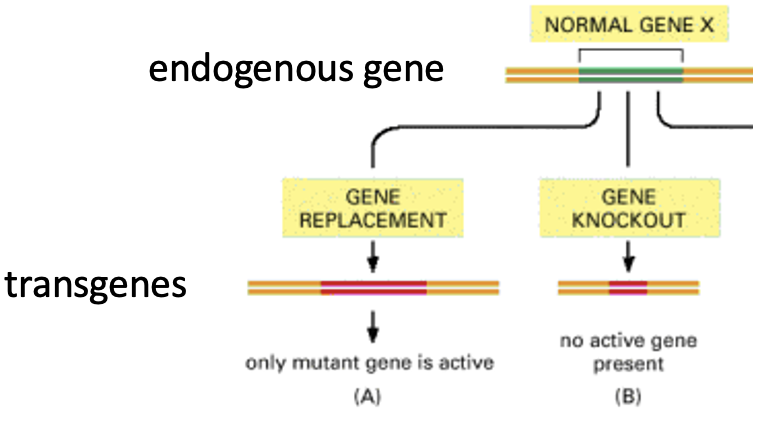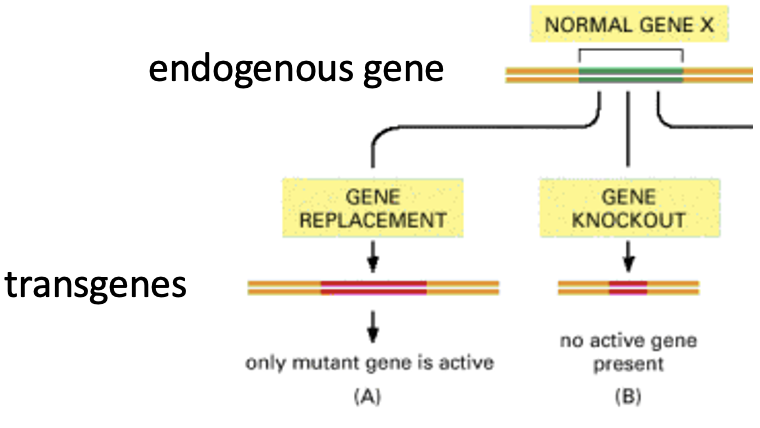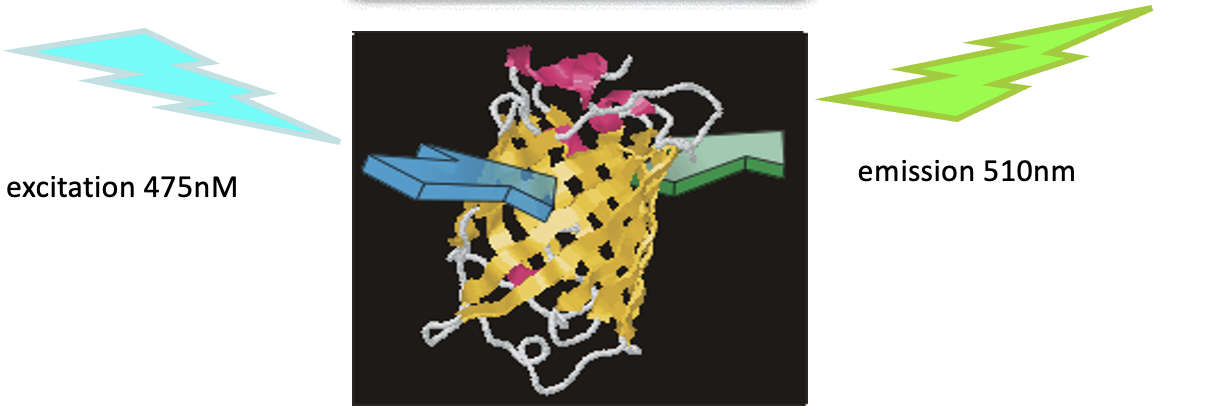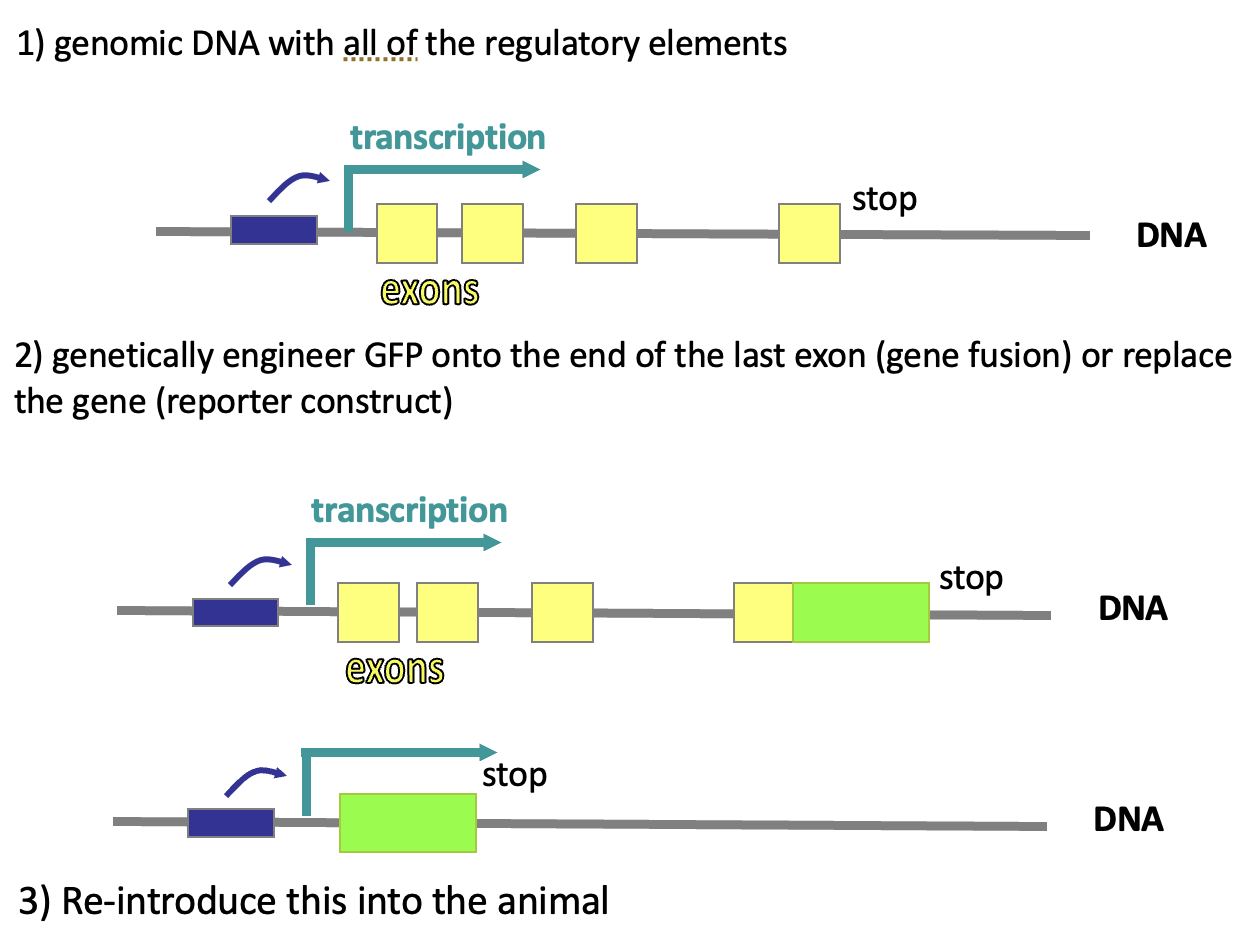Lecture 5: Developmental Genetics
1/31
There's no tags or description
Looks like no tags are added yet.
Name | Mastery | Learn | Test | Matching | Spaced |
|---|
No study sessions yet.
32 Terms
What are genes named after?
A protein product or the phenotype, whichever came first.
How are mutations made in labs?
Using radiation (UV light, x-rays, radioactivity) or chemical (base analogues, base modifiers, intercalating agents).
Define forward genetics
Uses high levels of mutagens to make lots of mutations in model organisms (mutagenesis) to identify certain mutation/interesting phenotypes.
Define germline mutations
Mutations that are inherited (sperm or oocyte).
Define somatic mutations
Mutations that are just in the body, ie not inherited.
Define gene knockout
When a gene is completely removed to determine its function.

Define gene replacement
Usually making small changes to the endogenous gene so only mutant gene is active.

Define reverse genetics
When an interesting gene has been identified but don’t have the mutation.
Define CRISPR
Technology that allows for DNA of living organisms to be selectively modified. Works in any organism.
What 3 ways do mutations affect genes?
Changes in regulatory sequence in DNA that affects transcription (e.g binding site mutations = less protein transcribed).
Changes in non-coding sequence of the transcription that may affect RNA splicing, stability or translation (e.g. mutations effects splicing = might splice out entire exon).
Changes in the coding sequence (e.g may alter a.a sequence = effect folding of protein = loses some or all of function. or makes premature stop codon = truncated protein.
Define missense
Single a.a substituted.
Define nonsense
Stop codon. Mutation results in shorter, unfinished protein product.
Define domain
Functional unit in a protein.
Define dimer
When 2 of the same protein bind together.
Define conformational change
Change in protein structure.
Define dimerisation domain
When 2 identical proteins come together (dimer).
Define wild-type copy
Non-mutated version.
In the example of a hypothetical Tf, how does an amorphic/non-functioning mutation affect functioning? (e.g missense mutation that completely inactivates the DNA binding domain).
+/-: normally there is enough product from one wt copy. Haplosufficient.
-/-: strong phenotype due to no transcriptional activation. This is recessive.
Define haplosufficient
One copy is enough.
In the example of a hypothetical Tf, how does a hypomorphic/weakened mutation affect functioning? (e.g missense mutation that weakens the DNA binding domain).
+/-: normally there is enough gene product form one wt copy. Mutant form may also dimerize with wt + still activate transcription.
-/-: mild phenotype due to poor transcriptional activation. The dimer forms on DNA but is often falling off. This is recessive.
In the example of a hypothetical Tf, how does an antimorphic/dominant negative mutation affect functioning? (e.g missense mutation that destroys the dimerisation domain).
+/-: the mutant forms binds DNA but does not dimerise with the wt = doesn’t have a conformational change to become active. Transcription is compromised + is only activated when 2 wt proteins land together. This is dominant.
-/-: completely inactive.
In the example of a hypothetical Tf, how does a hypermorphic/overactive mutation affect functioning? (e.g missense mutation that results in activation that is independent of dimerisation).
+/-: the mutant form binds DNA is active all the time (constitutively active). This increases the overall activation of transcription. This is dominant.
-/-: is the same.
Define amorphic mutation
Complete loss of gene function. Typically early nonsense mutations or deletion of the entire gene. Most genes are haplosufficient in diploid organisms so are usually recessive.
Define hypomorphic mutation
Loss of function mutation. Reduction of wt function. Typically missense mutations. Usually recessive.
Define antimorphic mutation
Loss of function mutation. Competitive inhibitors. Typicallys mutations that affect 1 domain of a protein. In heterozygotes the mutant form is partially active allowing the mutant protein to interact with + poison the wt protein. Aka dominant -ive.
Define hypermorphic mutation
Gain of function mutation. Over expression of the transcription unit or over activity of the gene product. E.g mutation in binding site for a repressor. Dominant.
What do mutations that result in the same phenotype that are NOT in the same gene suggest?
That the gene functions in the same pathway.
How is it known that there may be different mutations in the same gene?
If a mutation results in the same phenotype. Aka alleles.
Define reporter constructs + give an example
Indicates if a certain gene has been taken up by or expressed in the cell/organism. Example green fluorescent protein (GFP).
How does green fluorescent protein (GFP) work?
Excites protein with a certain wavelength of light which is absorbed by a specific atom that becomes excited then emits a diff wavelengths/colour of light.

Describe the steps of generation a GFP transgenic line

What are the uses for GFP transgenic lines?
To follow expression of a gene or to follow the behaviour of cells in vivid. To follow subcellular localisation of a protein.